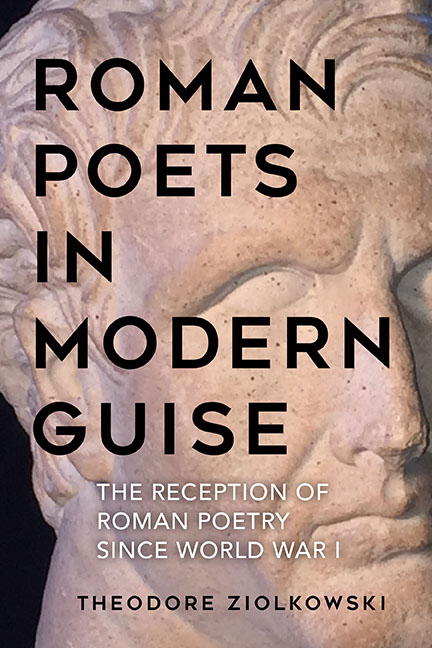5 - Propertius and the Outsiders
Published online by Cambridge University Press: 21 October 2020
Summary
Arecent study of Propertius opens with the statement that “interest in Sextus Propertius in the twentieth century has been immense.” The author, D. Thomas Benediktson, supports this claim with references to translations by Ezra Pound and Robert Lowell, an apparent imitation by James Joyce, and what amounts to two book reviews by Benedetto Croce. Pound's highly controversial Homage to Sextus Propertius (1919) is of course well known. Benediktson (135) clarifies his allusion to Joyce by arguing that the description of Stephen's dream of his mother in the opening pages of Ulysses is reminiscent of Propertius's dream (4.7) of Cynthia's ghost (“Sunt aliquid Manes”). He discusses (135–42) Lowell's accomplished translation of Propertius 4.3 in “Arethusa to Lycotas” (Day by Day, 1975). His final example (142) is poem XVI from A. E. Housman's A Shropshire Lad (1932), although the eight lines on a lover who “hanged himself for love” more precisely suggest an epigram than a full elegy.
Benediktson's brief list has been slightly expanded by others. J. P. Sullivan analyzed Lowell's earlier poem “The Ghost (Aft er Sextus Propertius)” (from Lord Weary's Castle, 1946) as a “highly successful, ‘free translation’” of Propertius 4.7. And he added (178–80) the further example of William Butler Yeats's “A Thought from Propertius” (in The Wild Swans at Coole, 1919), whose brief eight lines amount to little more than an epigram inspired by Propertius 2.5–10. Other scholars have cited Derek Walcott's “A Propertius Quartet” (in The Arkansas Testament, 1987), in which the poet styles himself Propertius and his lover Cynthia: “she whose first syllable was Sin, as yours was Sex.” In the four brief (mostly twenty-one-line) poems, which are set in the present on St. Lucia Island in the West Indies, the poet informs us that “this summer I simply repeated him” although “he writes in another language, your venerable Propertius.” Like his Roman model, “I wanted no empire, laurel, no palm / but yours” and is content with his own Cynthia.
Still others have mentioned Joseph Brodsky's poem “Anno Domini,” which though set in Christian antiquity, is spoken by “a writer who has seen the world” and has a wife named Cynthia.
- Type
- Chapter
- Information
- Roman Poets in Modern GuiseThe Reception of Roman Poetry since World War I, pp. 133 - 154Publisher: Boydell & BrewerPrint publication year: 2020



